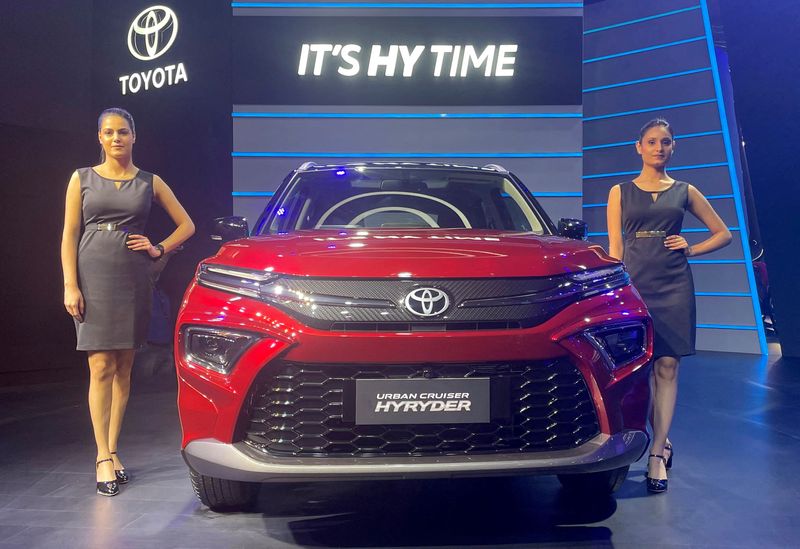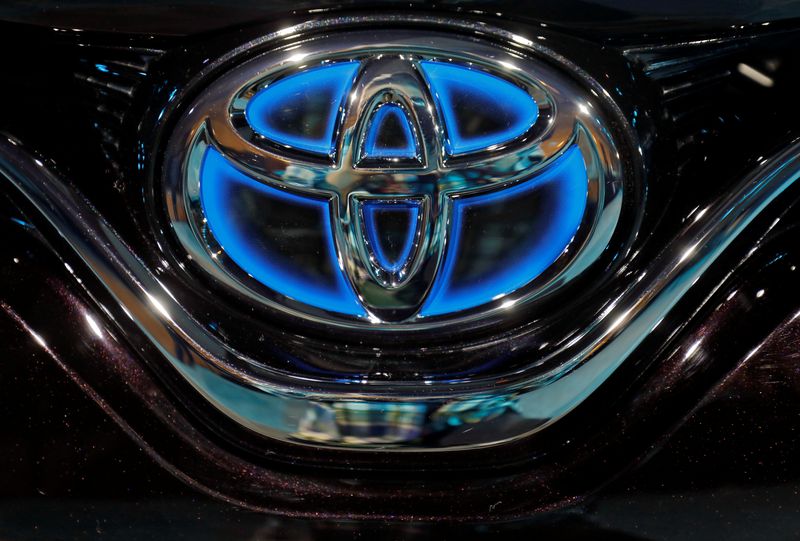By Sarita Chaganti Singh and Aditi Shah
NEW DELHI (Reuters) - Japan's Toyota Motor (NYSE:TM) is lobbying the Indian government to cut taxes on hybrid vehicles by as much as one-fifth, arguing they are far less polluting than petrol cars but do not get commensurate policy treatment, a company letter shows.
The world's largest carmaker plans to expand production capacity to meet a surge in Indian demand for hybrids, but Prime Minister Narendra Modi's government has focussed on pushing sales of electric vehicles (EVs), offering companies millions of dollars in incentives to build EVs and batteries.
India taxes EVs at just 5%, while the levy on hybrids is as high as 43%, just below the 48% imposed on petrol cars.
Toyota argues this 5-percentage-point differential favouring hybrids over petrol cars is "insufficient", given the reduced emissions and better fuel consumption hybrids offer, according to its letter to Modi's Niti Aayog think-tank, which plays a key role in policymaking.
The tax differential over petrol cars should be as much as 11 percentage points for hybrids and 14 points for flex-hybrids, says the letter from Toyota's India country head, Vikram Gulati.
That amounts to a tax rate of 37% on hybrids and 34% on flex-hybrids, cuts of as much as 14% and 21%, respectively, according to Reuters calculations.
"We would kindly request for a proportionate policy support," Gulati wrote in the Sept. 20 letter, which has not previously been reported.
Toyota, which popularised hybrid technology with the Prius, has faced criticism from investors and climate groups for still supporting hybrids, which it says make better sense for markets where the infrastructure is not ready for EVs.
Indian giants Tata Motors (NYSE:TTM) and Mahindra & Mahindra are backing EVs, while Toyota and Honda (NYSE:HMC) Motor want support for hybrids.
Toyota declined to comment on the letter but said the "most optimal way" to reduce carbon emissions was through a mix of electrified and alternative energy options, including EVs and hybrids.
Niti Aayog did not respond to a request for comment.
Toyota has begun developing EVs while also championing hydrogen-powered cars, saying a "multi-pathway" approach is needed to solve the climate crisis.

India's tax structure and use of typically more expensive power-train - including an engine and electrified parts like batteries and motors - makes producing hybrids "30%-35% costlier than its petrol counterparts," Toyota says.
In its letter, Toyota also asks India to bring hybrid cars under a government incentive programme that offers discounts to buyers, a scheme now available only for EVs.
